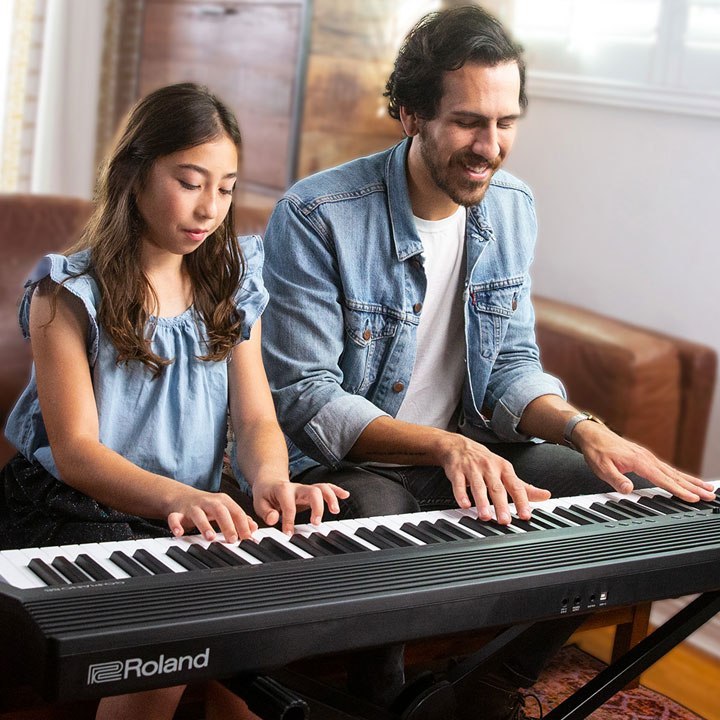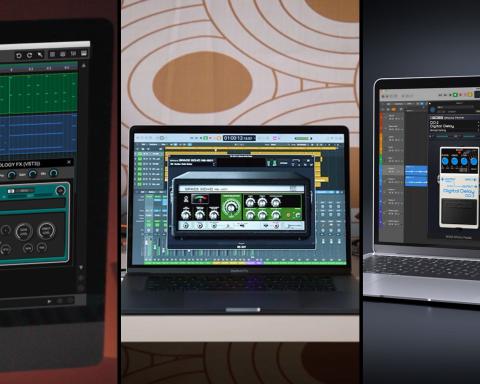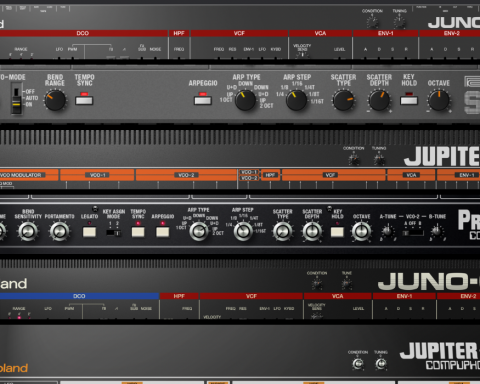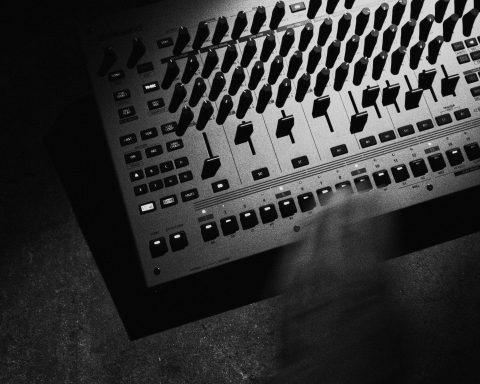Most students who learn to play the piano will encounter at least once, and possibly multiple times, the experience of preparing for piano recitals, concerts, auditions, and exams. If we think about it, we can see that a recital is a unique occasion. The student is bringing music, the most sublime and beautiful of art forms, to life. A piano recital is a significant and noble endeavor.
A Child’s Feelings
For a moment, imagine a child as she or he anticipates performing in a recital. Children are sensitive, often more than they reveal. When a child goes into a performance or piano recital, whether they’re conscious of it or not, they’re in a completely exposed situation.
They’re alone on the stage, with all eyes and ears upon them. Depending on what happens, a recital may help a child gain confidence and poise or result in the very opposite.
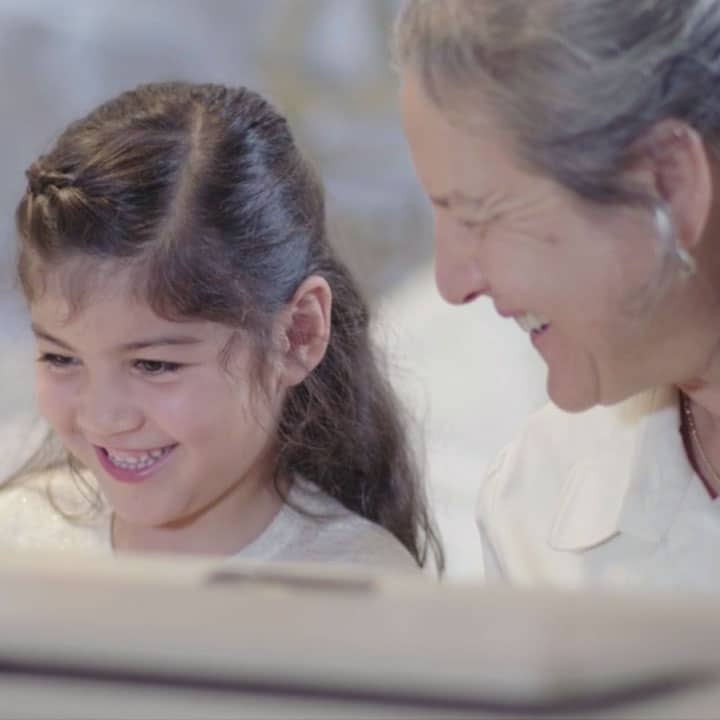
My Childhood
When I was eight years old, I began studying the piano. I had a wonderful teacher. Each year she hosted a student recital before the summer holidays. I prepared for these recitals diligently in anticipation of the afternoon when students and parents gathered at my teacher’s home.
We’d enter my teacher’s living room—where she teaches to this day—her two grand pianos placed side by side. There, we all took a seat on the sofas and chairs or sat cross-legged on the plush red carpet.
In turn, we went up to the piano and announced our piece to the audience. Finally, we played, striving to make our performance the best it could be. Afterward, in the warm breeze of summer, we enjoyed cookies and punch my teacher offered on the outdoor patio of her home. We felt appreciated and acknowledged. Each of us performed the music we studied and shared the joys of that music with others.
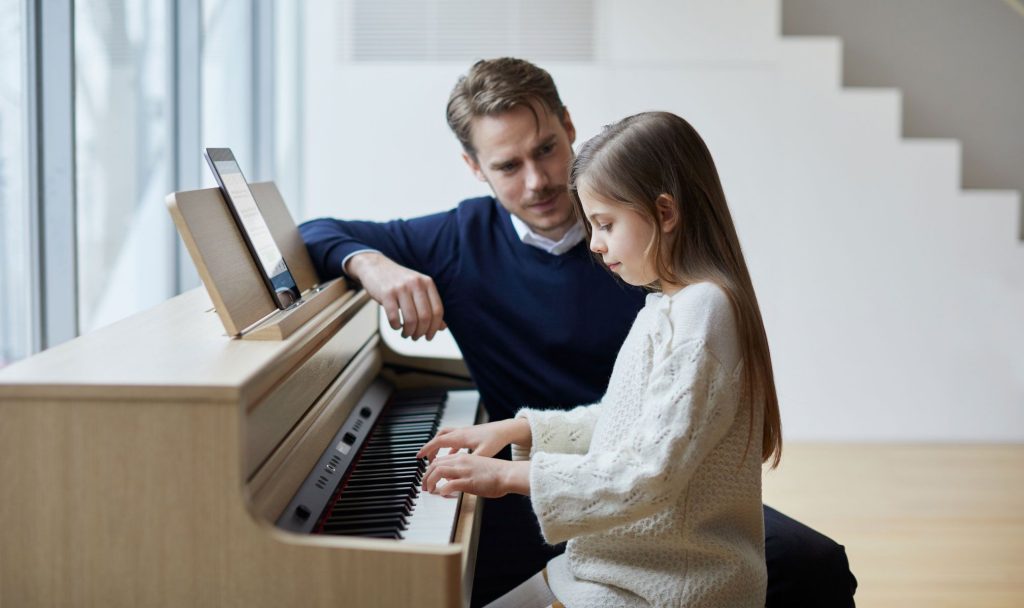
The Parent-Teacher Team
When your child performs music, it is an opportunity to let them know they’re supported. In the best-case scenario, you’re part of a team with the child’s teacher—someone who is also sensitive and aware. The child realizes they’re not alone. This knowledge helps them step out and bring their music to others.
In this way, your child will build self-reliance. In essence, this means autonomy. Whatever the response of the audience or judges, the student learns to evaluate their playing based on their sense of accomplishment.
With the guidance of a good teacher, the student considers their performance with interest and honesty. They might ask, “Did I succeed in bringing my inspiration and the beauty of the music to people?” In this way, the student’s confidence will grow and endure for a lifetime.
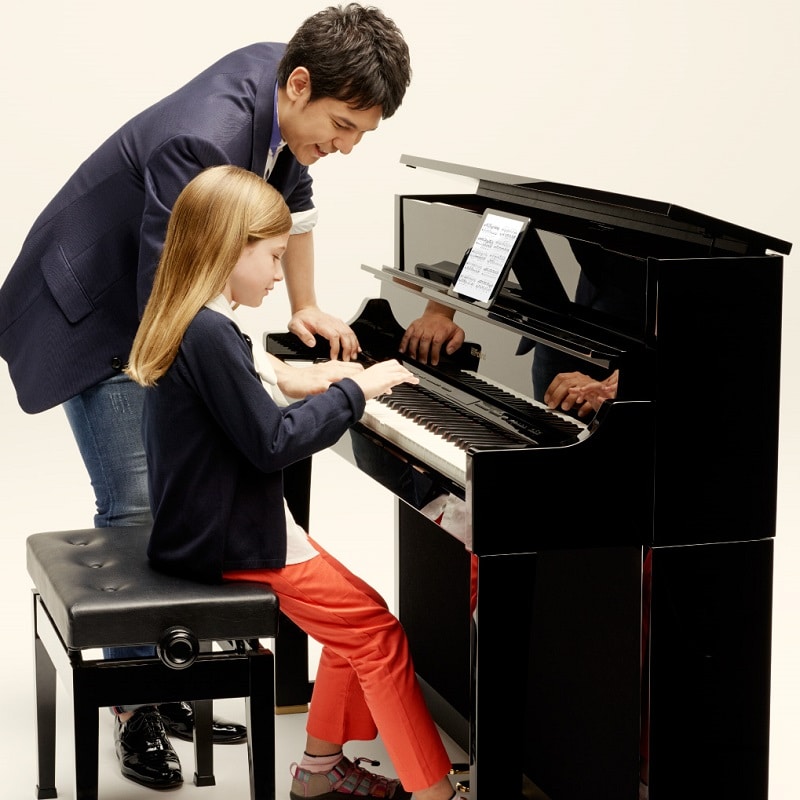
Getting Ready
In a recital, the student builds a bridge between their practice and sharing their attainment with others. Practicing is like being an athlete—a gymnast, a figure skater, a surfer—who prepares for an event. In all of these examples, the end result is sharing everything they’ve worked on with the audience.
"Students dedicate themselves to a goal and purpose, developing focus, self-discipline, and commitment. These qualities build character."
Practicing for a performance is to apply one’s self to achieving something wonderful. Students dedicate themselves to a goal and purpose, developing focus, self-discipline, and commitment. These qualities build character.
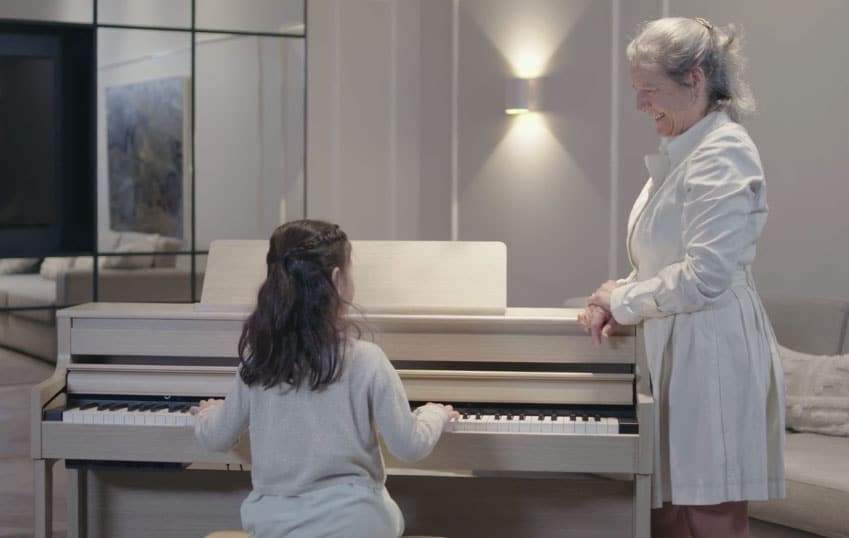
Practice Tips: Part 1
History:
Do a little research about the composer and the piece you’re studying. What do you think the composer was trying to communicate? This is a significant question. All music, no matter how famous, began with someone in front of a blank page, striving to express a feeling.
Expression and Meaning:
In light of your research, ask yourself about the meaning of the piece. What is the feeling? What inspired you to learn the music? The answers will inform both your practice and interpretation of the music.
Technical Mastery for Piano Recitals:
Remember, you’re forming new brain connections as you learn to play! Slow and accurate practice is essential. Listen to your playing–what needs improvement? Focus on the challenging sections of the piece, rather than always returning to the beginning. Next, put these sections together as if you’re building a house, brick by brick. A good teacher can help with this process.
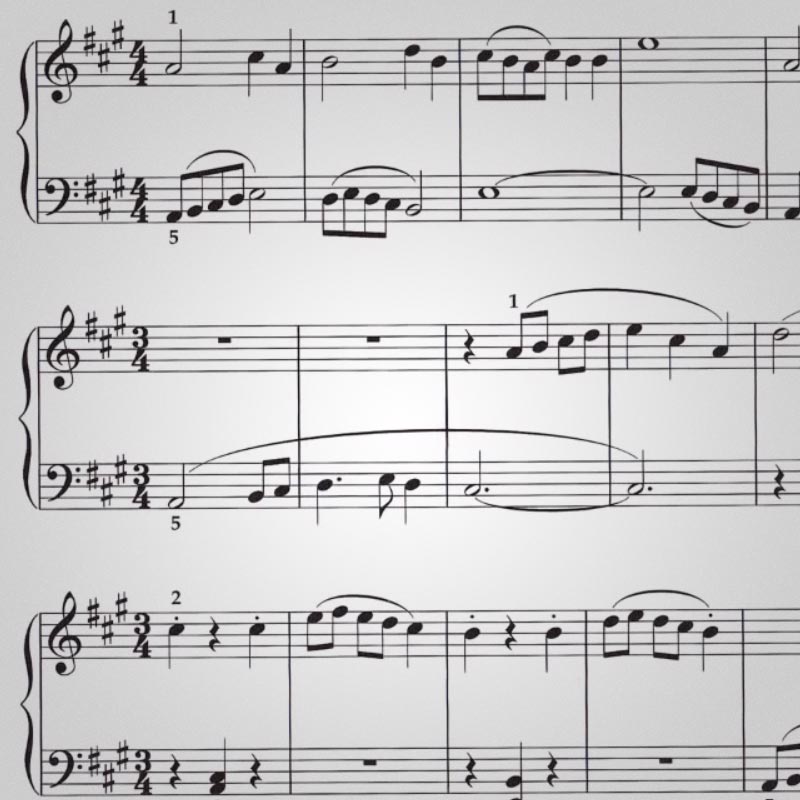
Practice Tips: Part 2
Memorizing and Musical Anchors:
Memorization is a significant aspect of performing. As you practice your piece, create musical “anchors.” These are sections, 2 or 3 bars in length, which you know well. Practice and memorize the notes, the chords, and harmonies. You want to be able to picture these sections under pressure. You can even copy them onto manuscript paper. These little anchors will give you confidence when you eventually perform.
Record Your Playing:
As you’re developing a piece, record your playing. When you listen to your recordings, you’ll begin to hear yourself objectively. Reviewing your recordings will help you discern how you’re doing. Listen and evaluate the aesthetic and technical elements of your playing. It’s a bit like becoming your teacher.
Trial Runs:
As you complete the piece, schedule a trial performance. Ask family members or friends to attend. These should be people with whom you feel comfortable. Before you sit down to play, announce the title and composer. Share something about the history and feel of the piece, and what it means to you. Bring people into the experience you’re about to share.
At all stages of your practice, remember what you love about the music. That’s the most important thing. Allow your inspiration to carry you.
A True Story About Preparing for Performance
When I was 15 or 16 years old, my teacher suggested the idea of piano competitions. By that time, I’d done many of her little recitals and was non longer a child. Still, I was nervous.
At the time she suggested the idea, I was practicing “Mozart’s Piano Concerto #21 in C Major.” As soon as I heard the sublime 2nd movement, I knew I had to play it. The choice inspired me to learn the whole concerto: fifty-two pages of music. In the end, the process took two years.
Finally, I was ready to audition. I had prepared for my piano recital. This was my first time performing before a panel of judges. I would be playing on a huge concert grand piano in a vast auditorium. As one might imagine, I was nervous. However, with the support of my teacher, I did well. That gave me the incredible opportunity to perform my Mozart concerto with a real orchestra.
"When Mozart, Beethoven, and Chopin composed their famous pieces, the music didn’t exist yet. Who knows how many mistakes went
into the process?"
Over time, I entered several other competitions. In one audition, I reached the 2nd movement–the beautiful theme that I loved so much. I don’t know what happened. I’m not sure. But, I lost track. And I hit a wrong note in one of the most well-known melodies of all time. The sound rang out like a strange, off-key bell. Everything stopped. It startled me.
Then I remembered my teacher and how she’d taught me to keep going, no matter what. So, I continued and finished the performance. I didn’t win the competition. However, for years afterward, my teacher and I recalled with humor how I rewrote Mozart that afternoon.
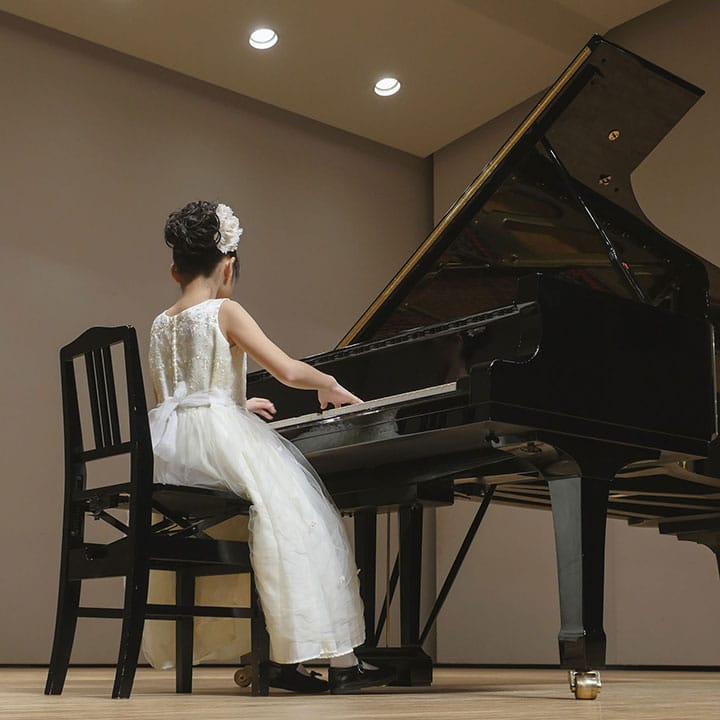
The Larger Context
I’m not suggesting that you emulate this experience. The melodies of these great pieces are timeless for a reason. Still, I want to put perfection in a larger context. Life is grand and uncharted, and there is a value in imperfection.
Mistakes have been the source of incredible inventiveness in the history of humankind. When Mozart, Beethoven, and Chopin composed their famous pieces, the music didn’t exist yet. Who knows how many mistakes went into the process?
In my music-making, I do a lot of composing, improvising, and arranging. Perhaps that audition, years ago, gave me an ability to let go, to move beyond the boundaries of the familiar. I write and rewrite music all the time. Indeed, new music arises from new ideas, and sometimes these have perceived errors. There’s enormous freedom here.
"You’re there to express what you love about the music. Take a moment and begin with that."
Breathe
When you first sit at the piano to perform, take a few moments. Breathe. Relax. Take a beat. It’s okay. Think of the people who care for you, who are supporting you. Then, consider the music you’re about to play.
- What do you like about the piece?
- Is it lively with the runs of notes?
- Does it have a calm and flowing melody?
- Is the piece strong and bold in mood?
The piece you play should feel like your own. You’re there to express what you love about the music. Take a moment and begin with that. Remember your musical anchors and practice them for the performance. If you have a memory lapse, return to these familiar places. They will become your friends.

A Relaxing Image
During one performance, I was sitting at the piano about to begin. 300 people were waiting for me to play. I felt nervous, and when I touched the keys to play the music I’d studied and loved, my nerves started to overwhelm me. I could feel it, and I didn’t know what to do. Suddenly, an image came to my mind: a peaceful cow.
The cow stood in a vast field of green clover. It was at ease, its head lowered to the grass as its mouth moved back and forth. As I played, I shifted my mind to the cow and the beautiful green grass. The notes and phrases of the music unfolded, and I kept picturing that serene cow. As I did, I became calm, and my nerves subsided.
Perhaps you have an image that has a calming effect. You can use it.
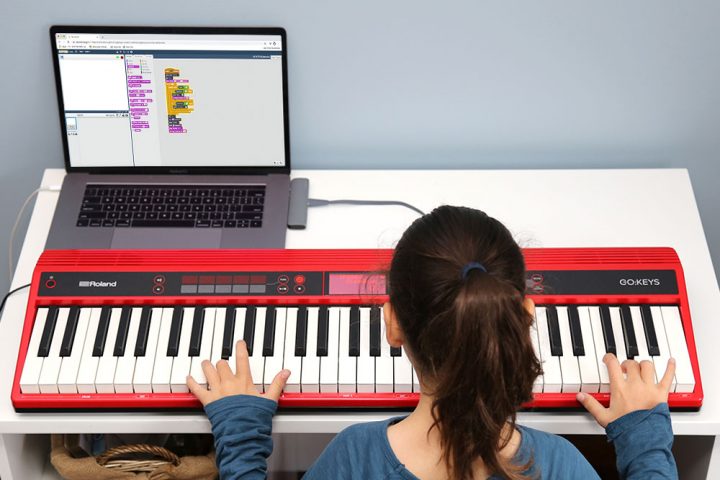
Recordings of Your Music
Over the years, I’ve created many audio recordings of my playing. This discipline is an important one. Right before your piano recital, listen to a recording you’ve made of your playing. It will ground you in the feeling of the music and your playing. Like musical anchors and calming images, it will give you strength and self-assurance.
Also, I listen to recordings of my favorite pianists. I do this when preparing for piano recitals, and it inspires me. Listening to a recording can be like stepping outside of time into the pure essence of the piece. It’s given me strength and enlivened the feeling of the music inside me.
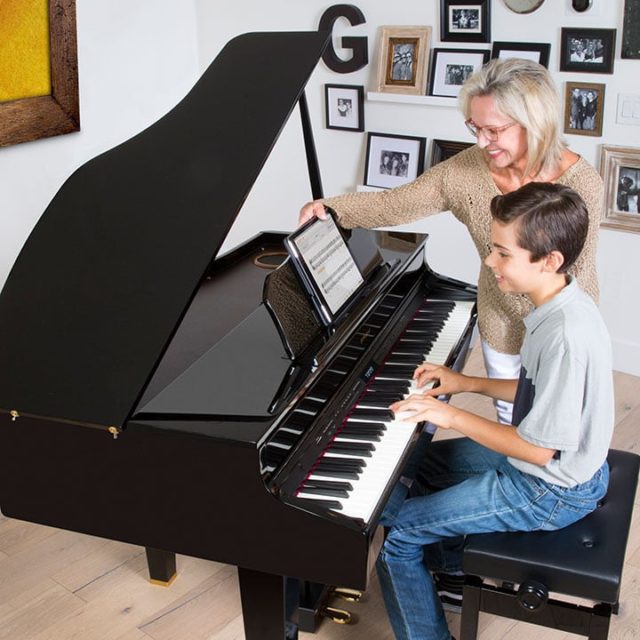
The Final Note
Finally, no matter what happens during a piano recital, you always have the ending. Even if you make mistakes or forget your way, don’t worry. You can end the piece with poise and grace. It’s an incredible thing to observe and will inspire anyone who’s watching.
When you reach the final bars, keep yourself focused. Listen to the last phrase as you play and the final note as it dissolves into silence. Hold the audience in the majesty of the music. That’s what will stay with people long after the recital ends. You’ve created a beautiful, memorable experience.
That’s mastery.
